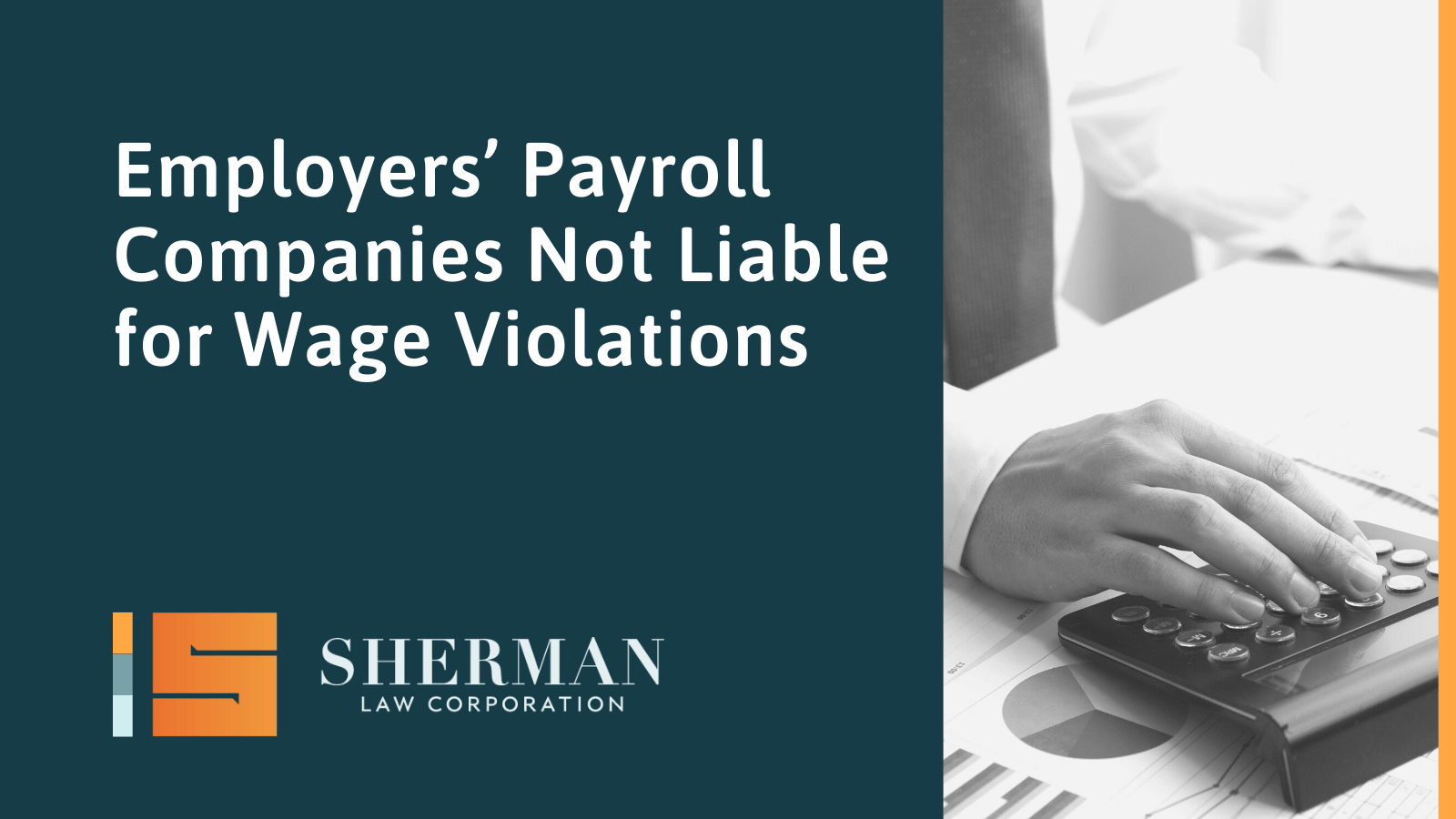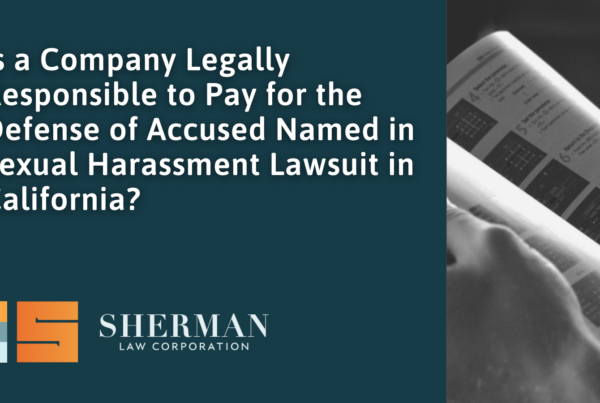
On February 7, 2019, the Supreme Court of California held in Goonewardene v. ADP, LLC, holding that employees may not sue their employers’ payroll companies for wage claims in connection with their employment. The high court’s ruling reversed a lower court’s decision, which had opened the door for employees to bring breach of contract and tort claims for unpaid wages against their employers’ payroll companies.
Facts of the Case:
Plaintiff Sharmalee Goonewardene filed a lawsuit against her employer alleging she was not paid wages when due and sought to hold Automatic Data Processing (“ADP”), her employer’s payroll company, for violations of the California Labor Code and California wage orders based on the theory that ADP and her employer, ADP’s client, jointly employed her. The amended complaint also included claims against ADP for breach of contract, professional negligence, and negligent misrepresentation on the grounds that ADP performed payroll services for the plaintiff’s benefit in an “inaccurate and negligent manner.” The trial court rejected Goonewardene’s theory, sustained ADP’s demurrer without leave to amend, and entered a judgment dismissing her claims against ADP.
The California Appellate Court’s Decision:
The California Appellate Court held that ADP was not Goonewardene’s employer for the purpose of bringing claims under the California Labor Code. However, the Appellate Court did hold that she could bring claims for unpaid wages against ADP for breach of contract, negligent misrepresentation, and negligence because she could be found to be a third-party beneficiary of the contract between ADP and her employer. For this reason, she could sue ADP for breach of contract in connection with her unpaid wages. As a third-party beneficiary, Goonewardene could also pursue tort claims against ADP for unpaid wages by suing for negligence and negligent misrepresentation.
The California Supreme Court Reverses the Court of Appeal:
On review, the California Supreme Court reversed, rejecting the Appellate Court’s holding that an employee is a third-party beneficiary of a contract between his or her employer and a payroll company. The California Supreme Court concluded that an employee is not a third-party beneficiary of a contract between a payroll company and their employer because (1) an employer’s contract with a payroll service company is intended to primarily benefit the employer, not its employees; (2) the payroll company performs only ministerial duties; and (3) imposing liability would be contrary to the expectations of the payroll company and employer when they entered into the contract.
The California Supreme Court also rejected plaintiff’s tort claims on public policy grounds for the following reasons: (1) employees already have “a full and complete remedy” for any wage loss via their claims against their employers; (2) imposing tort liability on payroll companies is not necessary as a deterrent to negligent conduct because a payroll company will be liable to the employer in the event of a payroll company’s negligence; (3) a payroll company has no special relationship with the hiring company’s employees; (4) imposing a duty of care on a payroll company could adversely affect the payroll company’s ability to fulfill its contractual obligations to the employer; and (5) imposing a tort duty of care on payroll companies would unnecessarily add to “California’s increasing volume of wage and hour litigation.”
Employer Take-Away:
Even though many employers contract out many of their payroll responsibilities to third party payroll companies, like ADP, the employers alone are liable for any such errors based on the law, such as this case, and the contracts between payroll companies and their client employers. Therefore, it is highly recommended that employers audit the processes and procedures of their payroll companies to ensure they are compliant with California law.
For more information on auditing payroll practices and procedures to ensure they are compliant with California law, feel free to contact Lisa Sherman at lisa@sherm-law.com or (323) 488-2087.
| Related Articles: |




